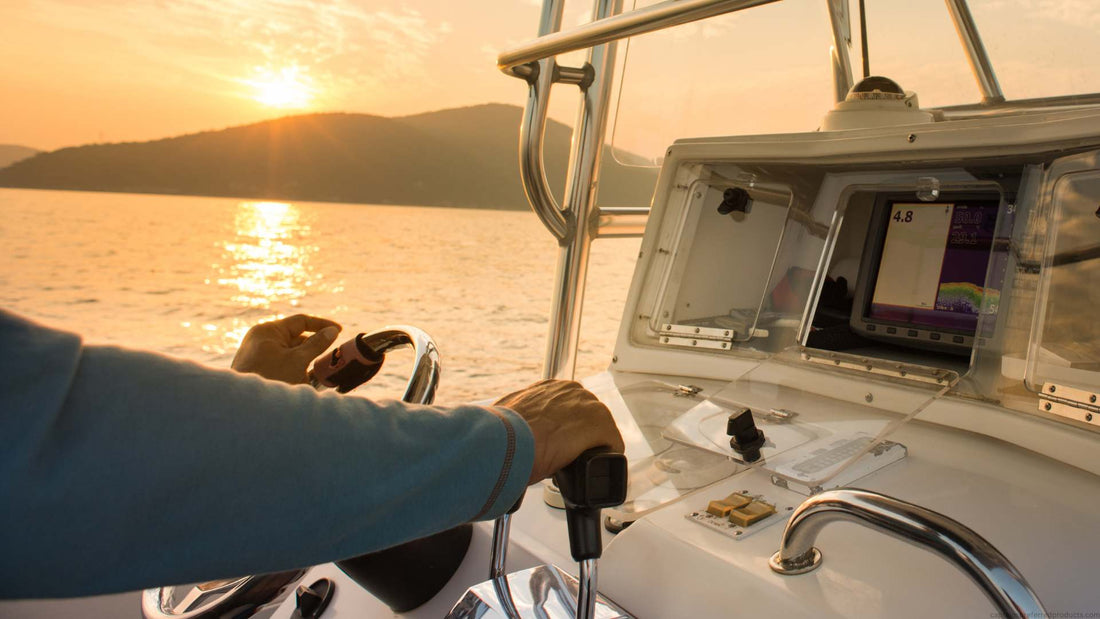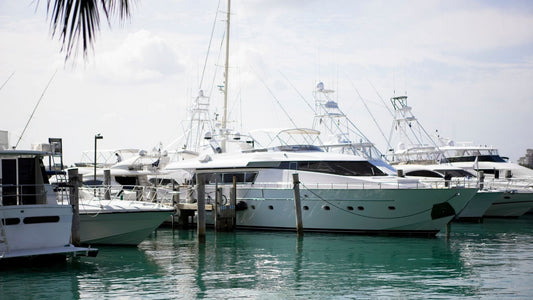
How to Become a Boat Captain: A Guide for Aspiring Mariners
Nicholas HeislerShare
Are you drawn to the open waters, dreaming of navigating a vessel under your command? Whether your goal is to lead fishing charters, operate commercial vessels, or simply gain the credentials to explore new horizons, becoming a boat captain is an exciting and rewarding journey. In this comprehensive guide, we'll break down the steps to earning your boat captain's license, from gaining experience to passing your Coast Guard exam. Let's set sail!
Why Become a Boat Captain?
The life of a boat captain offers more than just a job-it's a lifestyle. For some, it's about turning a love of boating into a career. For others, it's the freedom and adventure that come with navigating the open seas. Boat captains play a critical role in ensuring the safety of passengers, managing crews, and overseeing vessel operations.
There are diverse career paths, ranging from recreational chartering to professional shipping. With the right qualifications, you can helm yachts, fishing vessels, ferries, or even tugboats. If you're ready to embark on this journey, keep reading to learn how to chart your course.
Understanding the Role of a Boat Captain
Before diving into the licensing process, it's essential to understand what being a boat captain entails.
Key Responsibilities
- Navigation: Safely plotting and following routes to avoid hazards.
- Crew Management: Leading and coordinating team members to operate the vessel efficiently.
- Safety Protocols: Ensuring passenger safety, managing emergencies, and adhering to maritime laws.
- Vessel Maintenance: Keeping the boat in top condition through regular inspections and repairs.
Career Opportunities
As a licensed captain, you can:
- Operate recreational charters for fishing, sightseeing, or private events.
- Work on commercial vessels, such as cargo ships or ferries.
- Manage luxury yachts or become an instructor in maritime schools.
Steps to Becoming a Licensed Boat Captain
1. Meet Eligibility Requirements
To become a boat captain, you'll need to meet specific qualifications:
- Age and Citizenship: Most licensing programs require candidates to be at least 18 years old and hold U.S. citizenship or legal residency.
- Health and Fitness: Pass a medical exam, including vision and hearing tests. Physical fitness is crucial to handle the demands of the job.
- Background Check: Clear a criminal background check and drug screening.
2. Gain Boating Experience
Licensing requires a certain amount of logged sea time. Here's how to build it:
- Accumulate Hours: The U.S. Coast Guard (USCG) requires 360 days of sea time for an Operator of Uninspected Passenger Vessels (OUPV/Six-Pack) license. For a Master Captain's license, you may need additional time.
- Logbook: Maintain a detailed record of your time on the water, including dates, hours, and vessel details.
- Variety of Waters: Gain experience in different water conditions, such as lakes, rivers, and coastal areas.
3. Complete Required Training
Enroll in a U.S. Coast Guard-approved captain's course to gain the necessary skills. Topics include:
- Rules of the Road (navigation laws).
- Chart plotting and coastal navigation.
- Safety procedures and emergency management.
- Vessel handling and operation.
4. Pass the U.S. Coast Guard Exam
The USCG exam is a critical step. Here's what to expect:
- Exam Content: Sections include navigation, safety, regulations, and seamanship.
- Preparation Tips: Take practice exams, attend review courses, and focus on weak areas. Many training schools offer exam prep as part of their curriculum.
5. Apply for Your Captain's License
Once you've passed the exam, it's time to submit your application. The process includes:
- Filling out the USCG application form.
- Providing documentation of sea time, medical fitness, and training completion.
- Choosing your license type: OUPV (for vessels with up to six passengers) or Master (for larger vessels).
Advanced Certifications and Career Growth
Becoming a licensed boat captain is just the beginning. Additional certifications can open up new opportunities:
- Endorsements: Specialized skills like towing, sailing, or advanced navigation can enhance your credentials.
- STCW Certification: The Standards of Training, Certification, and Watchkeeping are mandatory for captains operating internationally.
- Continuing Education: Consider advanced courses in offshore navigation, marine engineering, or vessel management to stay competitive.
Costs and Time Commitment
Financial Investment
- Training courses: $500 to $3,000, depending on the program.
- Exam fees: $100 to $150.
- Licensing application: Approximately $145 for most licenses.
- Miscellaneous: Medical exams, drug testing, and study materials.
Time Investment
- Gaining sea time: 1 to 3 years, depending on your boating activity.
- Training courses: Typically 2 to 4 weeks for intensive programs.
- Licensing process: Application review can take a few months.
Tips for Aspiring Captains
- Volunteer: Offer to crew on boats to gain diverse experiences.
- Join Communities: Network with local yacht clubs, boating organizations, or marinas.
- Seek Mentors: Connect with experienced captains who can provide guidance and share insights.
- Stay Informed: Follow updates on maritime regulations and safety protocols.
Benefits of Becoming a Boat Captain
The rewards of being a captain extend beyond financial gain. You'll enjoy:
- Freedom and Adventure: Explore new waterways and travel to exotic locations.
- Career Stability: With proper credentials, captains are in demand across industries.
- Personal Fulfillment: Few careers offer the mix of responsibility, challenge, and excitement found in boating.
Captaining a boat isn't just a job; it's a passion that connects you with the water and the people who share your love for it.
FAQs About Becoming a Boat Captain
Do you need a license to captain a private boat?
No, a license isn't required for private, non-commercial boating. However, for commercial operations, a license is mandatory.
How long does it take to become a boat captain?
The timeline varies but typically ranges from 1 to 3 years, depending on your sea time and availability for training.
What's the difference between an OUPV and a Master license?
An OUPV license allows you to operate vessels carrying up to six passengers for hire. A Master license permits you to captain larger, inspected vessels with more passengers.
Chart Your Course Today
Becoming a boat captain is an achievable goal for those with a passion for the water. By following the steps outlined above, you'll be well on your way to earning your captain's license and opening the door to exciting opportunities. Whether you dream of leading a fishing charter, helming a luxury yacht, or exploring the open seas, the journey starts here.
So, what are you waiting for? Start logging your sea time, enroll in a training course, and take the first step toward your dream of becoming a certified boat captain. The ocean is calling-will you answer?
When it comes to keeping your boat clean, look to Captains Preferred Products' boat cleaners and chemicals. Find everything you need to keep your vessel squeaky clean all season - always at the best prices.




